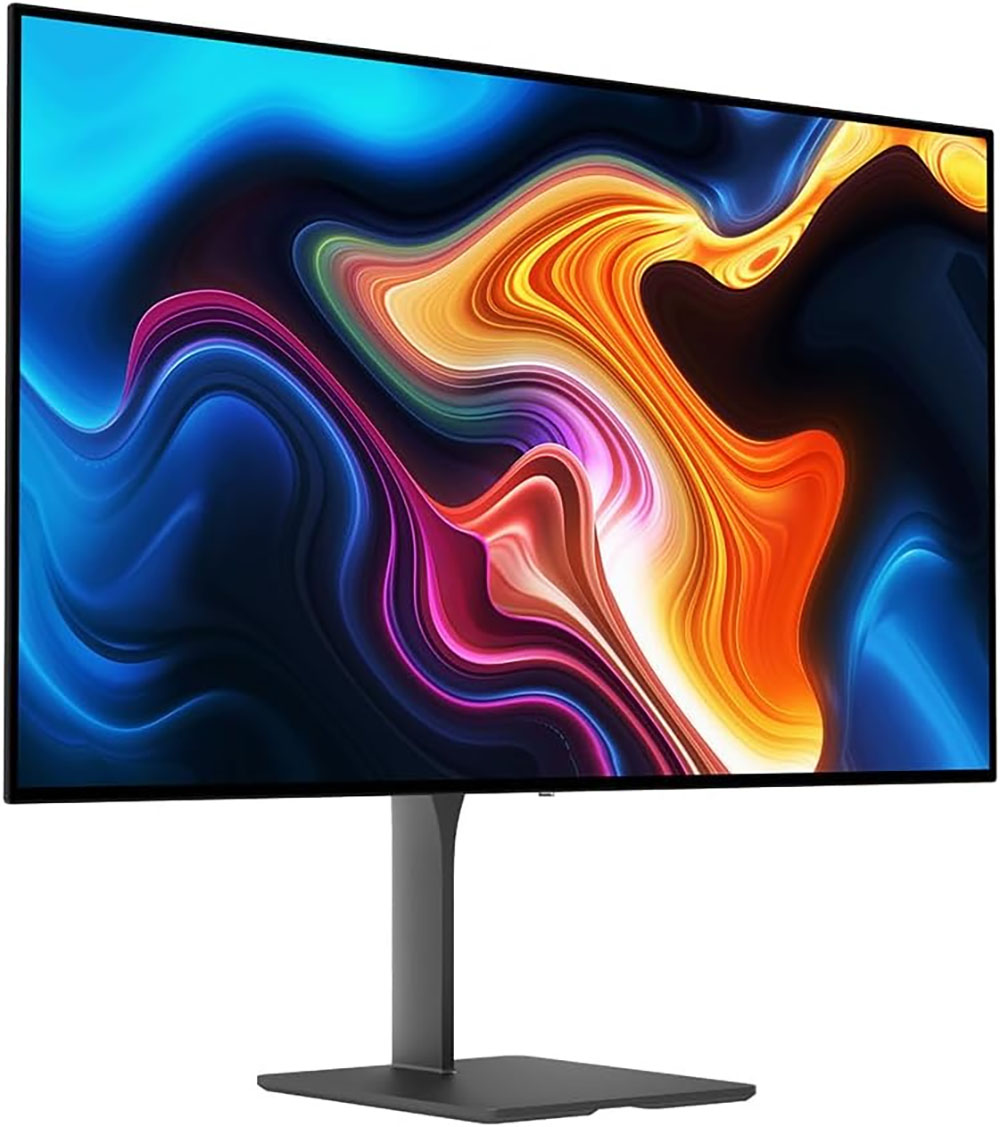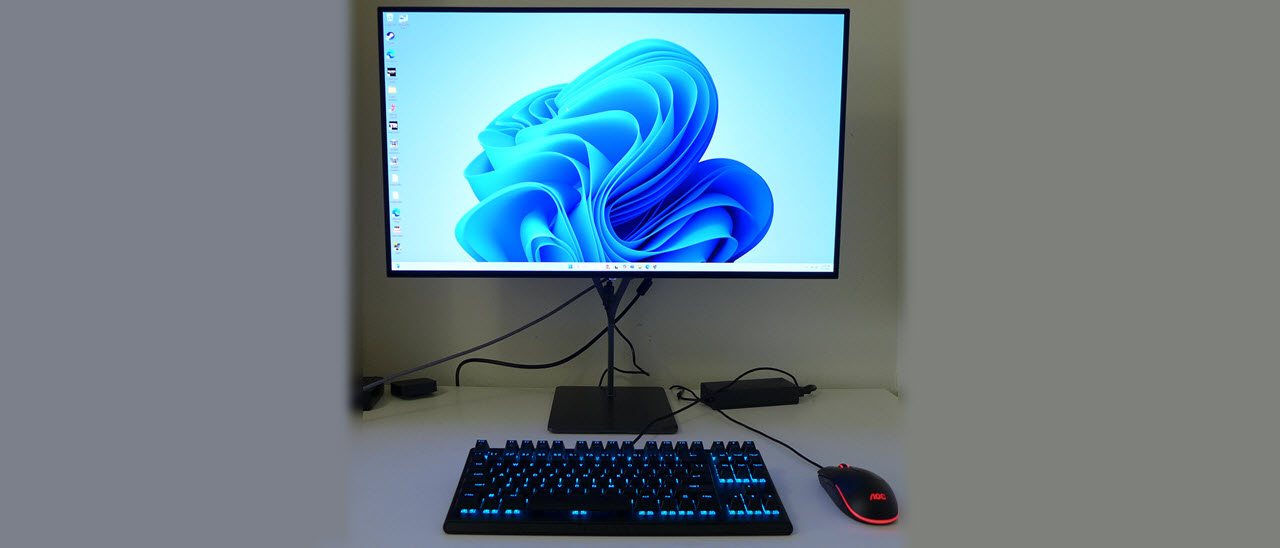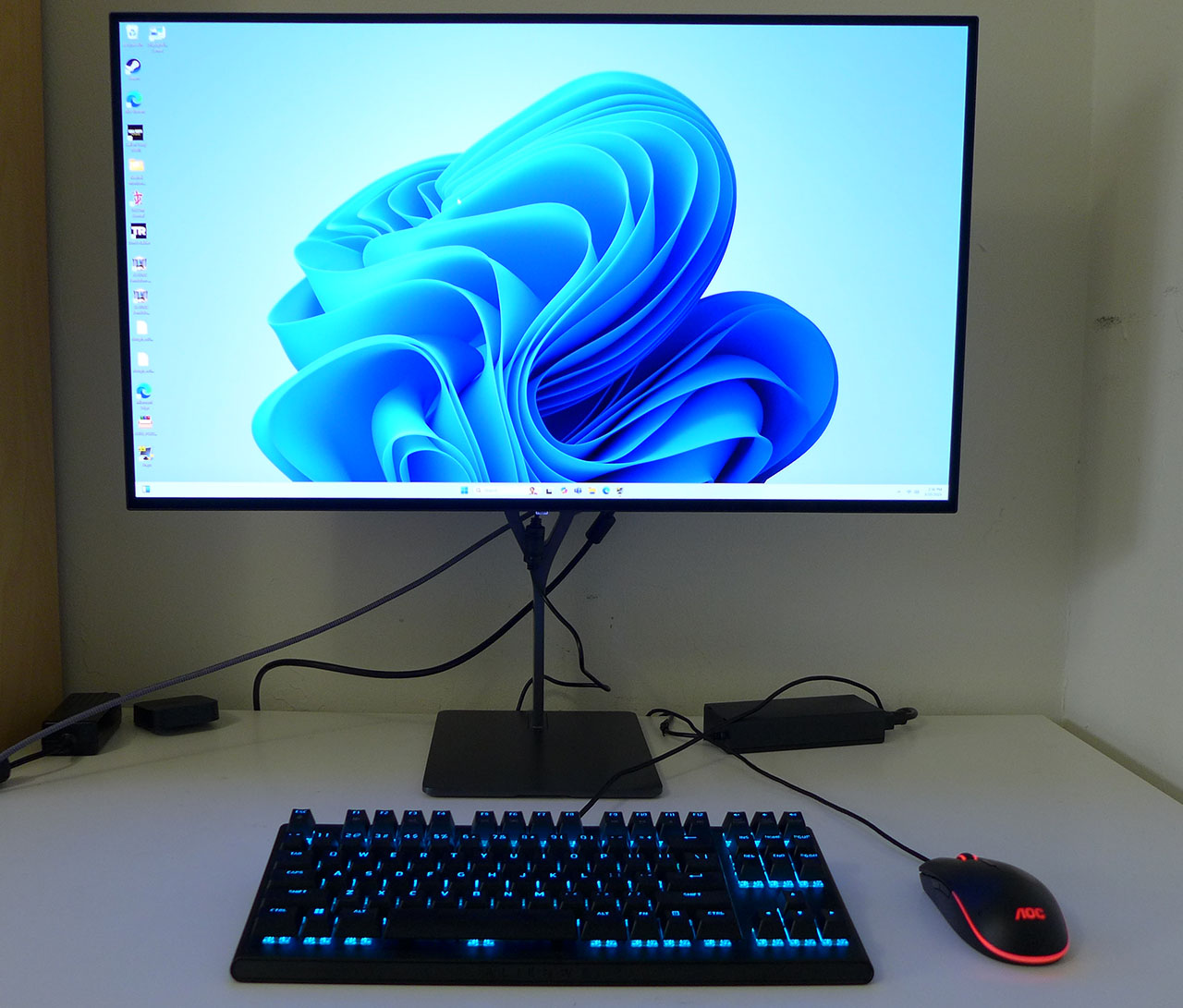Why you can trust Tom's Hardware
After being impressed by the Dough Spectrum Black 32, I still maintain that you cannot buy a bad OLED gaming monitor. The differences between them are so small that it becomes a matter of buying a great display or a slightly greater display. You just can’t go wrong. That said, the Spectrum Black 32 stands out with its use of Gorilla Glass and incredibly low input lag in its 480 Hz mode. Those two things are not equaled by anyone else at this writing.

Taken purely as a 240 Hz Ultra HD OLED monitor, the Spectrum Black 32 excels. Speed is on par with the competition, and it delivers the perfect motion resolution all OLEDs are known for. At 480 Hz, response goes to another level and even though you’re looking at 69ppi, the draw of just 9ms total lag is undeniable. In either mode, it’s addictive. I can’t imagine what better gaming feel would be like.
Dough’s unique use of Gorilla Glass is also a positive. I can’t quantify claims of greater contrast with tests, but my eyes can see the advantage. Its optical purity and effective reflection management combine to render a stunning image. And it manages very high output in HDR mode.
I measured 714 nits from a 25% window, and I have no doubt that it would top 1,000 nits with Dough’s claim of 3%. The Spectrum Black 32 is bright and colorful. The only thing that could make it better is a Quantum Dot layer which Alienware, Aorus and HP have in their 32-inch OLED offerings.
In the end though, it’s about gaming and there, the Dough Spectrum Black 32 is pretty much the king. It has super low input lag, flexibility with dual-mode operation and flawless motion processing. Gameplay is truly addictive in both look and feel. If you can afford one, I highly recommend checking it out.
MORE: Best Gaming Monitors
MORE: How We Test PC Monitors
Get Tom's Hardware's best news and in-depth reviews, straight to your inbox.
MORE: How to Buy a PC Monitor

Christian Eberle is a Contributing Editor for Tom's Hardware US. He's a veteran reviewer of A/V equipment, specializing in monitors. Christian began his obsession with tech when he built his first PC in 1991, a 286 running DOS 3.0 at a blazing 12MHz. In 2006, he undertook training from the Imaging Science Foundation in video calibration and testing and thus started a passion for precise imaging that persists to this day. He is also a professional musician with a degree from the New England Conservatory as a classical bassoonist which he used to good effect as a performer with the West Point Army Band from 1987 to 2013. He enjoys watching movies and listening to high-end audio in his custom-built home theater and can be seen riding trails near his home on a race-ready ICE VTX recumbent trike. Christian enjoys the endless summer in Florida where he lives with his wife and Chihuahua and plays with orchestras around the state.
-
DoughIsAScam Dough is a SCAM company, they stole $700 from me and never had any intention of actually shipping me a monitor in return. DON'T FALL FOR IT, they have screwed me and countless others, don't give these losers a cent. The only reason I trusted them to begin with was because Tom's Hardware gave them a positive review. You need to take this article down and quit giving these SCAMMERS publicity.Reply
The fact that they've already had to change their name to dodge the bad publicity they got from their previous scams should be evidence enough that they are NOT trustworthy.
DON'T BE DUMB, DON'T BUY DOUGH. -
UnforcedERROR It bothers me that Toms published another article about a Dough monitor despite the fact that the "company" is clearly predatory.Reply
Read the comments from the previous Dough review:
https://forums.tomshardware.com/threads/dough-spectrum-black-27-inch-oled-gaming-monitor-review-pro-level-accuracy-and-premium-performance.3845054/
When your own staff member is calling out the company it should tell you that they don't deserve coverage. -
Clowny Tom's risks their integrity even mentioning this scam company, but publishing a product review? Shameless. This is a SCAM company that will take your money and never send you a product and never refund your money once you tire of waiting.Reply -
rikemomoLA Like others, I am still owed money ($800) from this company from years ago (I asked for a refund and despite countless emails assuring me they were working on it) and would strongly recommend not trusting this company with your own hard-earned funds. I am kind of disappointed that Tom's is reviewing this product, given the many years this has been going on.Reply -
COLGeek I would recommend all of you experiencing issues with this company that you dispute the charges with your credit card company to cancel these transactions. Good luck.Reply -
LabRat 891 Still, only DP 1.4 input.Reply
Non-starter vs. LG's own 32" OLED (1st party) offerings. -and, that's before considering this company's sordid past -
hannibal ReplyLabRat 891 said:Still, only DP 1.4 input.
Non-starter vs. LG's own 32" OLED (1st party) offerings. -and, that's before considering this company's sordid past
Did you read they also have same monitor with dp2.1 port… -
LabRat 891 Reply
Nope.hannibal said:Did you read they also have same monitor with dp2.1 port…
I opened the article, scrolled to specs, saw DP 1.4 and Dual-Mode 240hz/480hz, and realized I've seen this display before under another brand. -the LG, sitting in front of me.
Which, I bought after a very disappointing experience with another fresh-to-market 3rd party 32" 240/480hz OLED.
In-context,
Dough has a worse reputation than ASRock, and I wouldn't buy another ASRock display, myself. -
Sluggotg Reply
It sounds good in theory but companies like Dough just string you along till you can no longer get money back from the Credit Card company. (Is it like 4-6 weeks before your SOL?). I have had that happen to me a few times. I try to be the nice guy and keep believing their lies and in the end they keep my money and there is very little I can do, I do agree with COLGeek but make sure you file the complaint with your CC company within the time limit.COLGeek said:I would recommend all of you experiencing issues with this company that you dispute the charges with your credit card company to cancel these transactions. Good luck.
(Also look up customer complaints about Dough. Some sights have 95% one star reviews because they have ripped off so many people). -
thestryker I don't necessarily mind reviews of something like this, but to do so without any warnings about the company in question is an extreme disservice at best. Between the outright theft when they were called Eve and doing crowdfunding to shoddy QC and awful service this just isn't a brand to recommend (or at the very least attach giant caveats to any recommendation).Reply

